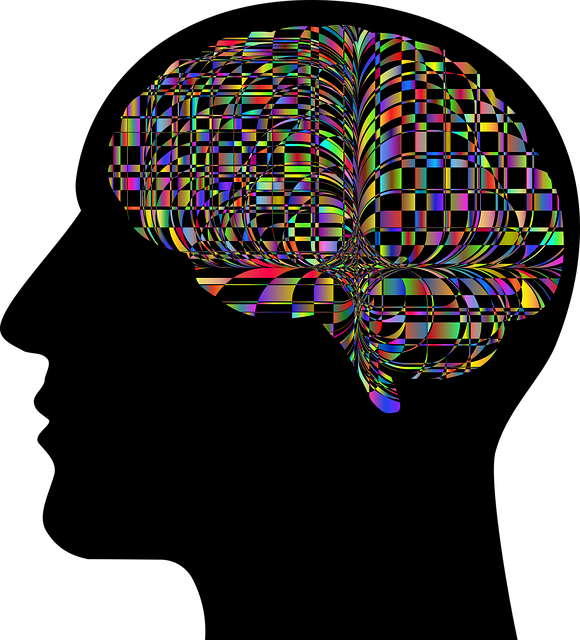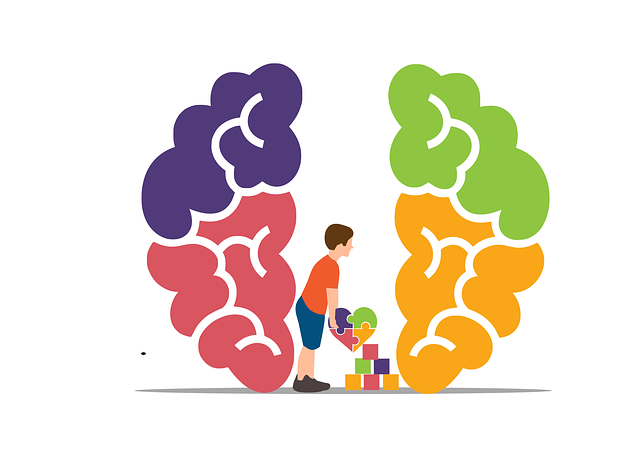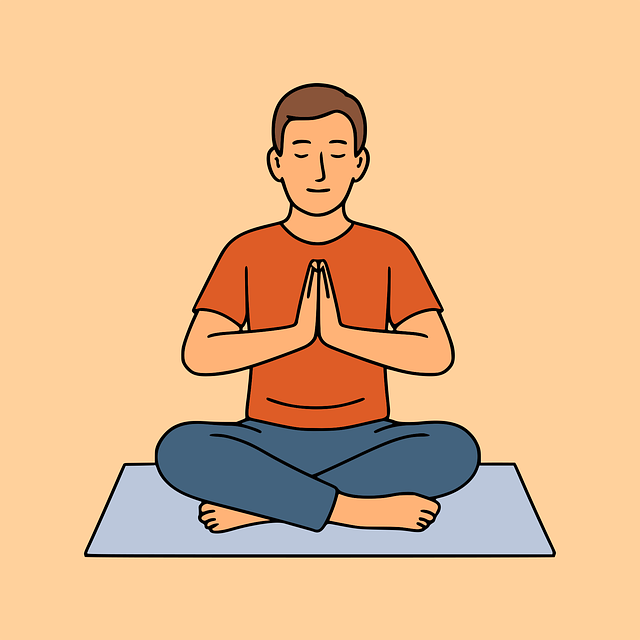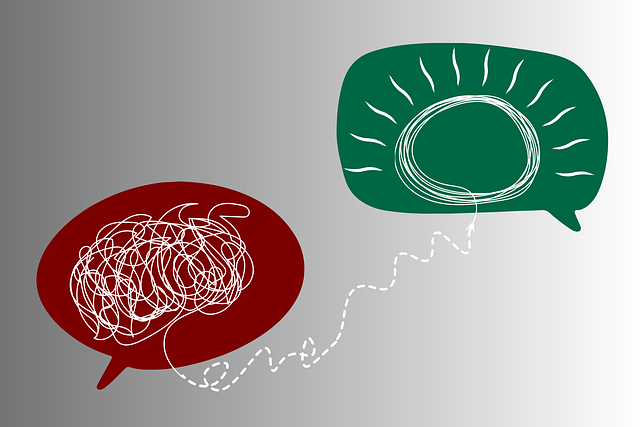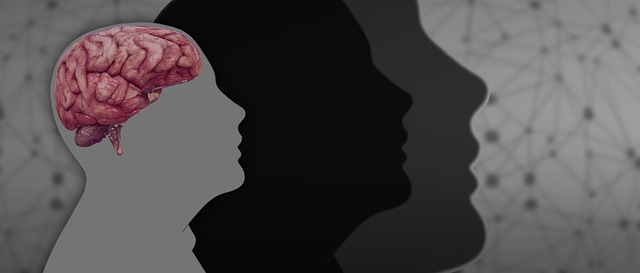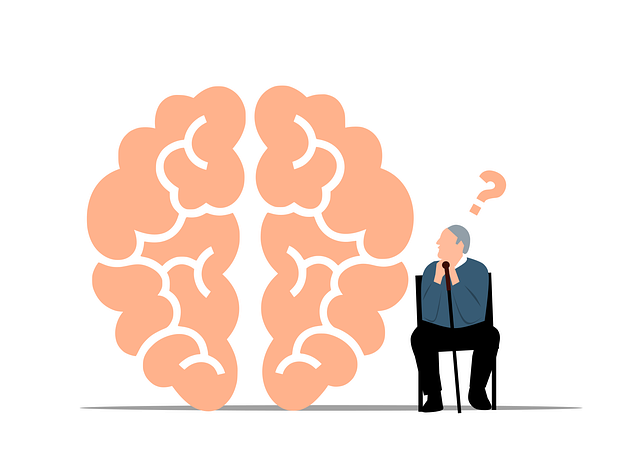Anxiety among the elderly is a prevalent but overlooked issue, exacerbated by loneliness, financial worries, health problems, and routine changes. Physical and mental decline increase vulnerability, with social isolation further contributing to heightened anxiety levels and suicide risk. Healthcare providers must identify subtle symptoms and provide tailored support using mood management techniques. CBT offers structured environments to challenge negative thought patterns, while mindfulness practices enhance emotional well-being and reduce stigma. Building strong social support networks and community outreach programs are vital for managing anxiety and preventing suicide. Holistic approaches like meditation, yoga, and acupuncture, coupled with culturally sensitive interventions, provide comprehensive care targeting symptoms and underlying causes.
Anxiety is a prevalent issue among the elderly, often stemming from various triggers and symptoms that can significantly impact their quality of life. This article explores effective anxiety management techniques tailored specifically for seniors, focusing on Cognitive Behavioral Therapy (CBT), mindfulness practices, social support, and alternative holistic approaches. By understanding these strategies, caregivers and individuals can navigate the complex landscape of elderly anxiety, ultimately contributing to enhanced mental well-being and potentially preventing suicide in at-risk populations.
- Understanding Elderly Anxiety: Common Triggers and Symptoms
- Cognitive Behavioral Therapy (CBT): A Powerful Tool for Anxiety Management
- Mindfulness Practices: Cultivating Calm in a Chaotic World
- Social Support Networks: Building a Safety Net for Mental Well-being
- Alternative Therapies: Exploring Holistic Approaches to Suicide Prevention
Understanding Elderly Anxiety: Common Triggers and Symptoms

Anxiety among the elderly is a prevalent issue that often goes unnoticed, with common triggers ranging from loneliness and financial concerns to health problems and changes in routine. As individuals age, their physical and mental health can decline, leading to increased vulnerability and heightened anxiety levels. This sense of insecurity might be further exacerbated by social isolation, especially during the global health crisis. Recognizing these triggers is a crucial step in implementing effective therapy for elders, focusing on suicide prevention and overall well-being.
Symptoms of anxiety in the elderly can manifest as restlessness, insomnia, excessive worrying, and difficulty concentrating. They may also experience physical symptoms like increased heart rate, fatigue, and muscle tension. Unfortunately, mental illness stigma reduction efforts often overlook the unique challenges faced by this demographic, leading to burnout prevention strategies that might not adequately address their specific needs. Healthcare providers play a vital role in identifying these subtle signs and providing appropriate support and mood management techniques tailored to older adults.
Cognitive Behavioral Therapy (CBT): A Powerful Tool for Anxiety Management

Cognitive Behavioral Therapy (CBT) is a highly effective and evidence-based approach for managing anxiety, making it a powerful tool in the fight against anxiety disorders. This therapy focuses on challenging and changing negative thought patterns and behaviors that contribute to anxiety. By identifying distorted thinking and replacing it with more realistic and positive thoughts, CBT empowers individuals to manage their symptoms and improve their overall well-being.
For elders at risk of suicide or experiencing burnout, CBT offers a safe and structured environment to explore and understand their anxious thoughts and feelings. Through this process, they can develop coping strategies tailored to their unique needs. Incorporating mindfulness meditation techniques within CBT has shown promise in reducing anxiety and promoting relaxation, which is especially beneficial for community outreach programs targeting at-risk populations.
Mindfulness Practices: Cultivating Calm in a Chaotic World

In our fast-paced, often chaotic world, mindfulness practices offer a lifeline for maintaining emotional balance and mental clarity. These techniques, rooted in ancient meditative traditions, equip individuals with the ability to focus on the present moment, thereby reducing anxiety and fostering calm. For elders, who may be particularly susceptible to loneliness, isolation, and heightened stress levels, mindfulness can serve as a powerful therapy. By incorporating practices like mindful breathing, meditation, or even gentle yoga, seniors can enhance their mood management skills, engage in healthy emotional healing processes, and mitigate the impact of mental illness stigma reduction efforts.
Beyond its benefits for elders, mindfulness has been recognized as an effective suicide prevention strategy. By cultivating a sense of inner peace and equanimity, individuals are better equipped to navigate life’s challenges without resorting to extreme measures. In essence, mindfulness practices provide tools not just for coping with anxiety in the moment, but also for building resilience against future stressors, thereby contributing to overall well-being.
Social Support Networks: Building a Safety Net for Mental Well-being

Social support networks are a crucial component of anxiety management and suicide prevention, especially for elders. Building a strong safety net involves fostering meaningful connections with family, friends, and community. This can include regular check-ins, shared activities, and open communication about mental health concerns. For many elders, these relationships provide a sense of belonging and purpose, which are essential for maintaining inner strength and resilience against anxiety.
Community outreach programs play a vital role in strengthening social support systems. These initiatives aim to connect isolated individuals with resources and opportunities for engagement. By implementing effective community outreach programs, healthcare providers can prevent burnout and promote holistic well-being among elders. This, in turn, enhances their ability to cope with anxiety and fosters a sense of security, reducing the risk of suicide.
Alternative Therapies: Exploring Holistic Approaches to Suicide Prevention

Anxiety management techniques often go beyond traditional therapy and medication, exploring holistic approaches that can be particularly effective for suicide prevention among elders. Alternative therapies like mindfulness meditation, yoga, and acupuncture have shown promise in reducing anxiety and promoting mental well-being. These practices not only help manage symptoms but also foster a sense of calm and connection, which can be especially beneficial for older adults who might feel isolated or disconnected from society.
Cultural sensitivity in mental healthcare practice is crucial when considering therapy for elders at risk of suicide. Effective crisis intervention guidance must account for individual cultural backgrounds and beliefs, ensuring that support is tailored to meet specific needs. Communication strategies that are respectful, empathetic, and inclusive can significantly enhance the therapeutic process. By combining alternative therapies with culturally sensitive approaches, mental healthcare providers can offer comprehensive support that addresses not just symptoms but also the underlying causes of anxiety, ultimately reducing suicide risk in elders.
Anxiety management is a crucial aspect of elderly care, as it can significantly impact an individual’s quality of life and overall well-being. By understanding common triggers and symptoms, elders and their caregivers can harness effective tools such as Cognitive Behavioral Therapy (CBT), mindfulness practices, robust social support networks, and alternative holistic therapies. These strategies not only alleviate anxiety but also serve as powerful suicide prevention methods, fostering a sense of calm and resilience in a chaotic world. Incorporating these techniques into daily routines can enable the elderly to navigate their fears, enhance their mental health, and enjoy a more fulfilling life.
